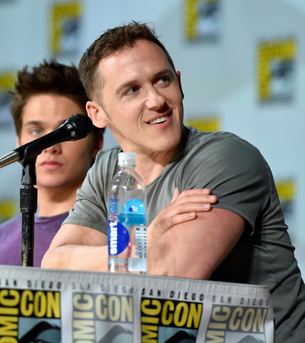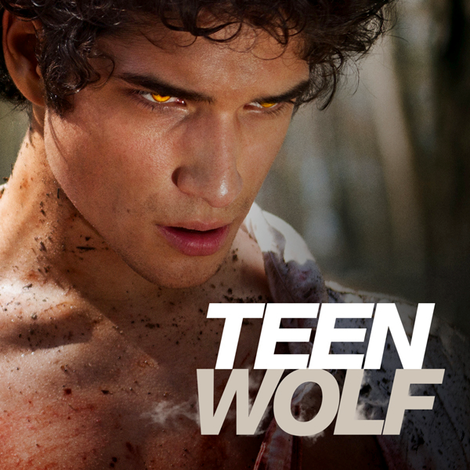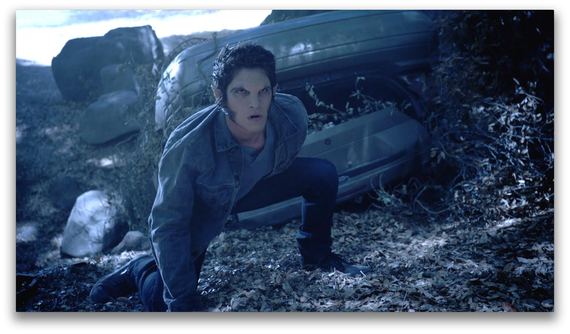"You know, the last time I checked that sign on the hill still reads 'HOLLYWOOD'... I don't know where else I would be!" - Jeff Davis
Age: 40
Give us the skinny on your background!
I started writing screenplays while I was in high school; feature film scripts. By the time I got to LA I had written about 20 scripts. I went to college at Vassar in NY and got a BA in Film Production, then I went to USC for Screenwriting. I started at USC in the directing program, but eventually switched over to screenwriting, because I didn't really have as much time to write screenplays as I wanted to and I was spending way too much time making very crappy short films that I knew wouldn't get me anywhere. Then after USC I got my first manager from Outfest, a screenwriting contest. After that I had scripts optioned.
What happened next?
That's an interesting story, actually. I was about 25 when I worked as an IT administrator for Innovative Artists, making no more than $32K a year; a barely livable salary in LA. I was the guy you called when your Mac wouldn't work. I basically walked behind the computer and pulled the plug. HAHA! That's how you fixed Macs back then. I remember the day I was on the cover of VARIETY, having sold a project to Paramount Pictures. I went to the studio store at Fox and bought 3 copies of VARIETY. There I was on the cover, but I spent the rest of my afternoon in a basement office at the Fox studios putting barcode stickers on the sides of computers and scanning them in. That's how I paid the bills. I was fortunate enough to work for a company that allowed me to go on meetings whenever I wanted, so long as I got my work done. Eventually, I was able to quit after I had gotten paid for screenwriting.
Do you feel that living in LA is necessary for a writer?
Yes! It's a long process to actually 'make it' in this town. I mean, I don't know many overnight successes. I don't know how anyone could ever think that they could become a successful screenwriter or writer in this business without actually living in LA. If you want to become an actor, writer or director... Just becoming a writer is a full-time job in and of itself. Just getting to the point where you actually get paid is a full-time job.
So, would you discourage actors from trying to be writers at the same time?
Not necessarily. But it is good to focus on becoming the best you can at one thing. If your passion is screenwriting then I would suggest focusing on writing. What I like to say is "If Plan A is to be a writer, don't have a Plan B." Most of the aspiring writers I know or have met have always gotten lost in the security of their day job. They start making money, they get a family, etc. In my opinion there is no better motivation than starvation. The best job obviously for an actor is a job in the service industry, like bartending or waiting tables, because it allows you to go on auditions. The thing those waiters or bartenders should always be doing though, is going on auditions as much as they can, acting in short films for free, and acting in theater. I know far too many actors out there who all they're ever really doing is getting new headshots.
Yes! I worked for an acting studio for a few years and I've witnessed that first-hand. These actors would get comfortable in their waiter or bartender jobs, because the cash was so good, and they would stop auditioning. Many of them thought that all they had to do is get those new headshots and that was going to be the 'thing' that got them noticed.
As a producer, I get handed headshots all the time. Honestly... I don't care about a headshot or a resume. When Dylan O'Brien came in to audition for us his resume was two YouTube links, and that was it! He got the part because he was really good in his audition. But as far as getting in and making it as a writer, it's a 10-12 year process. I feel like I did it pretty quickly, but I've been studying screenwriting since I was 16. I've read every book out there on screenwriting and still read books on screenwriting. My motto is, "Always be learning." Hopefully we're all aspiring to be better writers. One of the things my writing team and I do is sit down and ask each other if anyone has seen any good TV lately. We chat about what worked and what didn't, it's like constantly being in class.
So, for you, what was the big break? The project that got you in the door and laid the foundation for this amazing career you've had?
I would say it's when I entered a script into a contest. It's funny because I wrote that script for Outfest, a sort of coming out, gay, love story, but my thriller, Retribution is what actually got optioned and then sold to Dimension Films. My manager said, "Hey, I love this, but I don't think I can sell it. Do you have anything else?" That's when I gave her the Retribution script. From that point it was still a very lengthy, difficult process. Once you get in the door you kind of have to fight to stay in the room.
I want to go back to casting Dylan O'Brien from two YouTube videos. I know that a lot of TV casting actually happens from YouTube stars now, not necessarily from headshots and resumes. What's your take on actors going the YouTube route?
I think it's great, but what they have to stay away from though, is 'celebrity for the sake of celebrity.' We've auditioned some YouTube people for Teen Wolf and they've gotten in front of a camera and been absolutely dreadful. The reason is that they haven't treated acting as a craft. It's a craft just like any other. I would compare screenwriting and acting more to wood working. I truly believe that you have to treat it as a craft. Many YouTube kids know how to be funny and entertaining in front of their webcam, but when it comes to the actual craft of acting, being on set and channeling a character, they don't know the first thing about it. However, it is still a good way to get noticed. It's similar to how I got my start. I had a calling card with the script that I submitted to OutFest, but I also had a backup script, which was sellable (Retribution). YouTube stars are treating themselves as a commodity to be bought and sold, which is good, that's what you have to do in Hollywood, but you have to have a backup.
How do you feel about social media? Facebook fan pages?
I think it's useful, because as a producer, when I cast someone I will actually check their Twitter, Facebook and Instagram pages. Wanna know why? I want to know if they're an asshole. You can usually tell from their social media pages if they are a good person. One of the most important things to me is to find good people to work with.
Give me an idea of what your schedule looks like.
My schedule is absolutely insane. Being a TV show runner is an extraordinarily taxing job. The volume of work that's demanded is insane. I've built up a few ways to cope with it. Most importantly I try to always get at least 8 hours of sleep. In a given day I work 12-17 hours writing, being on set, approving props, makeup effects, special effects, wardrobe, location decisions, etc. But at the end of the day it's entirely your project. You're the boss.
How much time should aspiring writers be investing when they aren't at their day jobs?
They should always be writing. I remember when I was working my full-time job, I would finish my work as quickly as possible then write and even avoid going to lunch with people so that I could write on my lunch break. I've had numerous friends that work at development companies as PA's and they have no time to write. They'll be reading 20 scripts on the weekend and they'll never want to write.
So, they should be really selective about their day jobs? Basically, take jobs where they can leave their work at work?
Yes, exactly. That's the only way to do it, really. My best advice to writers is, don't get too secure in your day job. Always treat it as a day job. As long as you stay on that path you'll always be working towards what you really want to do, which is writing.
I think that's applicable to anyone in a creative field, right? The job is just the job.
Yes. You need to be able to still have energy. Writing is mentally very taxing. TV writing is like having a term paper due every week. Remember that feeling you felt when you were cramming for a term paper? That's the exhaustion of writing. It's mentally taxing.
What was your support system like when you decided to pursue this career?
I'm really lucky actually. I said I wanted to be a writer in high school and my parents said, "Go for it!" I also had some really good teachers that supported me and inspired me throughout college and high school. I had a Creative Writing Teacher in high school whom I still keep in contact with that really inspired me to write. That's incredibly important. There are so many people who will tell you that you can't do it. Hollywood is an interesting place to me because we don't support each other as artists. When I was in my 20's I remember being out for a drink one night and somebody as what I did for work. I said, "I'm an aspiring screenwriter," and he said, "Oh, God... Another writer?" I looked at him and said, "You know the last time I checked that gigantic sign on the hill still read 'HOLLYWOOD,' I don't know where else I'd be!" It amazes me that we don't support each other and actually try to help each other more. Any actor I meet that asks for an audition... They'll probably get an audition from me. I'm one of the few people in this town that will give an audition to pretty much everyone. I try to read everyone's scripts too. I might not get past page 10, because usually by that point I can tell if it's any good or not, but I'll give it a fair chance.
Can you provide a breakdown of how an aspiring writer can get their start and actually get their script into the right hands for consideration?
For starters, you have to move to LA. 2. You have to get a job that gets you in contact with people in the industry e.g. working in the mailroom of an agency, being a runner for a production company; you need to make connections. 3. Submit scripts to screenwriting competitions. 4. Take classes at UCLA Extension. There are so many people in Hollywood that work for somebody who knows somebody. The problem is that you need to write a good script. That's the hard part. There is a big mistaken notion about Hollywood. People think that there are tons of great screenplays and the difficulty is getting them read. That's not true. There are almost 90,000 screenplays registered with the WGA each year that are terrible. If you write a good screenplay that somebody can't put down... It will get bought. There is a lack of good stories out there. This town is desperate for a good screenplay that you just can't put down. That's one of the problems. It's not that hard to get to page 120 of a screenplay, but it's a monumentally difficult task to write something that people just don't want to put down. I remember reading this script I got off of the internet somehow, and I tore through it, got to the ending and was like, "OMFG this script is so good!" -It was the Sixth Sense. It got made about a year and a half after that. You read a script like that and you just know- there's no way this script won't sell. If you write a great script it will find its way.
What are the top elements that a GOOD script has?
It's really simple. Hollywood film stories are about someone who wants something badly and is having trouble getting it. Every story is like that. If you can write a script with a clear character, that has a clear, familiar want or need, we'll be interested in that story.
What kind of networking events should writers be involved with?
Writers are lonely people. HAHA! We spend a lot of time alone, in our offices. We really just need friends. If you come to Hollywood, and you have a good circle of friends, you'll find your way. Again, one of the best ways to network in this business is through screenwriting contests. There are so many of them these days. Professionals run these contests and read your scripts. That's how I got my first manager.
How do you find out about screenwriting contests?
Online. A great website is johnaugust.com. There are also really good books out there that will help you become a better writer, if you can't afford something like USC. To list a few: HOW TO BUILD A GREAT SCREENPLAY by David Howard, WRITING MOVIES FOR FUN AND PROFIT by Thomas Lennon & Robert Ben Garant, SHOWRUNERS: THE ART OF RUNNING A TV SHOW by Tara Bennett, YOUR SCREENPLAY SUCKS: 100 WAYS TO MAKE IT GREAT by William M. Akers, SCRIPTSHADOW SECRETS by Carson Reeves, SAVE THE CAT! by Blake Snyder. You just take what you can from each book.
Tell me about your role and your responsibilities. What can aspiring writers expect if they find that they have reached your level of success?
It's a tough business to break into, but that's partially because the payout is so big. The interesting thing too, is that if you become a TV writer and you want to run your own TV show, you really do become the CEO of your own company. I'm essentially responsible for about 250 people who work for me in one capacity, or another. The weird thing is that writers have never been trained to be leaders of companies and yet we are given tens of millions of dollars to suddenly setup a company, put out product, and maintain that product. I actually ended up reading management books to figure out how to manage people in the day-to-day operations.
Any other advice you feel to be valuable?
One of the most important things about writing in Hollywood that these books won't tell you is about being persistent. It really is what will make you successful in Hollywood. A lot of writers don't make it because they don't persist. They stop, give up, or get too comfortable in their day job. If you keep writing, you'll eventually make it. The odds will be far more in your favor if you simply persist. It may take you 10-20 years, but it will be worth it. When I came to LA I gave myself until age 30 to just sell a screenplay. I sold one a lot sooner than that and created Criminal Minds at 29.
So, what was your plan if you didn't sell anything by age 30?
I didn't have a plan! Remember what I said? No plan B! I actually came back home from Vancouver, after we shot the pilot for Criminal Minds, did my taxes and realized that I didn't have enough money to pay my taxes. I was like, "Ummm, if this doesn't work out I'm going to have to get back into IT!" But that happens sometimes, even with actors.





